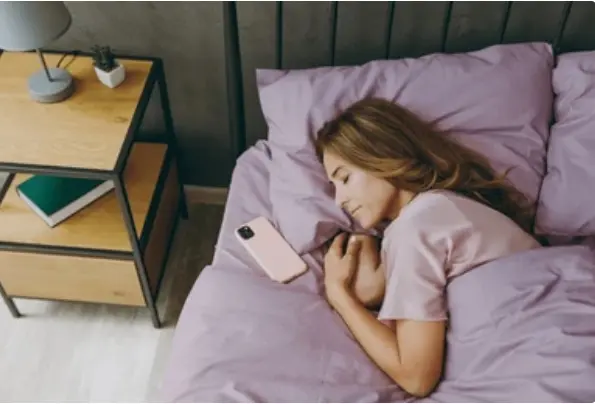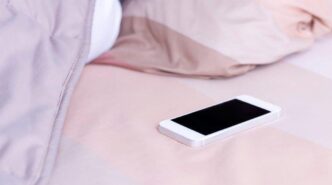Nigerians have been urged to rethink the common habit of sleeping with mobile phones under their pillows or beside their beds.
This warning was issued by Akin Ibitoye, a technology advisor at TMB Tech, during a segment on Morning Brief aired on Channels Television on Monday.
Ibitoye stressed that keeping mobile devices too close during sleep can pose serious health and safety risks.
Moreover, he highlighted the need for the public to be aware of the dangers these gadgets present when placed near the body at night.
“Do not sleep with your gadget under your pillow,” he said. “When you sleep with your devices under your pillow, it actually affects you. You don’t know.”
Ibitoye noted that the blue light from phone screens disrupts the body’s natural sleep cycle, which can result in poor sleep quality and serious long-term effects.
“These gadgets disrupt our circadian rhythm. That’s how, when it’s dark, your body gets the signal it needs to sleep,” he explained. “When you don’t get enough sleep, there are quite a number of things that even the medical practitioners have said could result negatively back to your body.”
Furthermore, Ibitoye warned that even when turned off or inactive, phones can release electromagnetic waves that may interfere with brain activity.
In addition, he recommended using wired or wireless earphones and placing phones away from the bed to reduce potential harm.

He added that many people fall into the trap of “doomscrolling,” which involves endless scrolling on social media apps late into the night. “We spoke about doomscrolling, where you just want to check Instagram for about five minutes, but you end up spending two hours,” he stated.
Beyond health risks, mobile phone safety in bed also includes preventing accidents like fire outbreaks caused by overheating batteries.
“These batteries, lithium-ion batteries, you notice they don’t allow them on airplanes for good reasons. This tiny marvel of technology can explode any time,” Ibitoye noted.
He also shared real incidents in which phones exploded while left under pillows or blankets.
“If you keep your phone under your pillow, your phone actually gets heated up,” he warned.
To avoid these dangers, Ibitoye advised that people return to the use of regular alarm clocks instead of depending on phones.
However, for those who still prefer having phones nearby at night, he offered a safer option.
“If you cannot afford to switch it off, put it in airplane mode. No call will come in, no SMS, no notification, but your alarm will still go off,” he said.
“Sleeping with your phone or your tablet under your pillow is actually a huge risk that you do not want to take,” he concluded.
The public is therefore urged to adopt safer bedtime routines and avoid habits that can compromise their health and safety.













